Barefoot Joe is a novel by W. B. Kinsella, which won the Hague and Gnon Mifflin Literary Fellowship and the Iowa Baseball League. It is the basis for the international film “Field of Dreams,” translated into Arabic by Mohamed Salah Nasser.
The novel is about baseball and the protagonist’s dream of turning his cornfield into a large baseball stadium. His wife’s family opposes him, but his wife stands in solidarity with him. The protagonist has friends, one of whom weakens and betrays him, but his spirit of love prevails. He persists despite all the obstacles that stand in the way of his dream. What distinguishes this work is that it highlights the protagonist’s creative spirit, as he transforms his cornfield into a large sports stadium and faces challenges he had hoped to overcome. This demonstrates that perseverance and determination are the primary motivation for progress and success. They said of the novel: “It’s a wonderfully terrifying book, not so much about baseball as it is about dreams, magic, life, and what is quintessentially American… a work that will outlive this season and many more.
Barefoot Joe
د.ا7.00
A novel that tells the story of a barefoot baseball player who suddenly appears on a farm, changing the course of the lives of those around him in a magical and hopeful way.
Available on backorder
| Categories: | Literature, Novels, stories, World literature |
|---|---|
| Tags: | Fiction, literature, Novels, thought |
| Author | |
|---|---|
| Year |
You may also like…
-
Maherdar
د.ا5.00A novel that combines fantasy and social drama, it addresses the journey of its characters in a world filled with psychological and existential challenges within a contemporary context.
-
A Space Odyssey 2001
د.ا5.00A science fiction novel that takes the reader on a journey through space to explore the secrets of the universe and the interaction of humans with artificial intelligence in the future.
Arabic/English -
The Old Man
د.ا5.00A novel that depicts man’s struggle with nature through the journey of a man and a young prisoner as they confront a devastating flood on the Mississippi River.
Arabic/English -
In the House on the Hill
د.ا5.00A novel that sheds light on the inner conflicts and complex human relationships that unfold in a secluded hilltop house, with a profound and realistic psychological approach.
Arabic / English
Related products
-
Land of sad oranges
د.ا2.13Ghassan Kanafani is a Palestinian novelist, storyteller, and journalist, and is considered one of the most famous Arab writers and journalists in the twentieth century. His literary works, including novels and short stories, were deeply rooted in Arab and Palestinian culture
د.ا3.55 -
The Forty Rules of Love
د.ا10.65is a novel written by the Turkish author Elif Shafak,[1][2][3] Her interest in writing this book was influenced by the degree she received in Gender and Women’s Studies.[4] The book was published in March 2009.[5] It is about the Persian mystic poet Maulana Jalal-Ud-Din, known as Rumi and his companion Shams Tabrizi.[6][7] This book explains how Shams transformed a scholar into a Sufi (mystic) through love.[8] More than 750,000 copies of this book were sold in Turkey and France
د.ا12.78 -
Anichatin and relativity
د.ا2.13In this book, its author, Dr. Mustafa Mahmoud, tries in his style known as ease and extreme logic in understanding the theory of relativity of the physicist Albert Einstein so that it suits the understanding and perception of the general public, and in a strong objection to limiting information to a few scientists under the pretext of depth and specialization, which may lead to the isolation of science, supporting in his book what Einstein himself called for to spread science among people, Einstein hated scientific fortune-telling and fabrication of mystery, claim, and magnification, and he used to say that the truth Never mind.
د.ا4.26 -
About men and guns
د.ا2.13Ghassan Kanafani is a Palestinian novelist, storyteller, and journalist, and is considered one of the most famous Arab writers and journalists in the twentieth century. His literary works, including novels and short stories, were deeply rooted in Arab and Palestinian culture
د.ا3.55 -
The Alchemist
د.ا4.97The Alchemist (Portuguese: O Alquimista) is a novel by Brazilian author Paulo Coelho which was first published in 1988. Originally written in Portuguese, it became a widely translated international bestseller. The story follows the shepherd boy Santiago in his journey across North Africa to the Egyptian pyramids after he dreams of finding treasure there.
د.ا7.10 -
In Zionist literature
د.ا3.55Ghassan Kanafani is a Palestinian novelist, storyteller, and journalist, and is considered one of the most famous Arab writers and journalists in the twentieth century. His literary works, including novels and short stories, were deeply rooted in Arab and Palestinian culture
د.ا4.97 -
For Bread Alone
د.ا4.97For Bread Alone , al-Khubz al-Hafi) is a controversial autobiographical work by Mohammed Choukri. It was written in Arabic in 1972 and translated into English by Paul Bowles in 1973.[1] In 1980, it was published in French as Le Pain Nu in a translation by Tahar Ben Jelloun. The novel has been translated into 39 foreign languages[2] and adapted into a French graphic novel by Abdelaziz Mouride [fr].[3]
د.ا7.10 -
My journey from doubt to faith
د.ا2.13I refused to worship God because I was immersed in worshipping myself and admired the flash of light that began to flash in my mind with the opening of consciousness and the beginning of the awakening from the cradle of childhood.
This psychological state was behind the controversial scene that recurs every day. I also missed the origins of logic and I am dealing with logic and I did not realize that I am contradicting myself as I recognize the Creator and then say who created the Creator and make him a creature at the time when I call him a creator, which is sophistry itself.
Moreover, to say a first cause of existence requires that this cause must exist in itself and not dependent or need others to exist. If a cause needs a cause, this makes it one of the causal links and does not make it a first cause.د.ا3.55

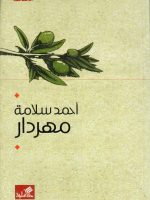
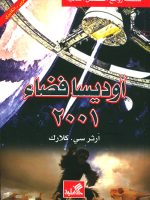
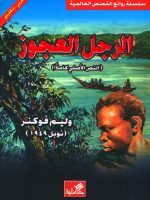
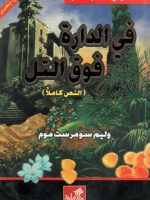
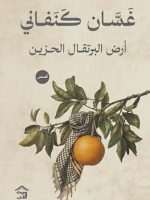
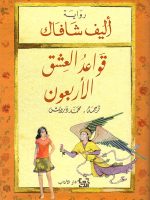
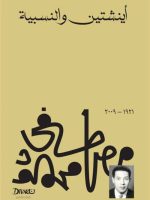
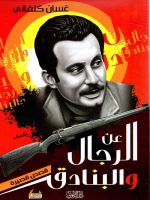
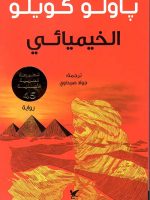

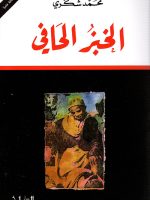
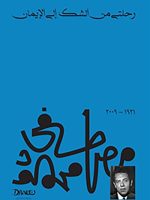
Be the first to review “Barefoot Joe”